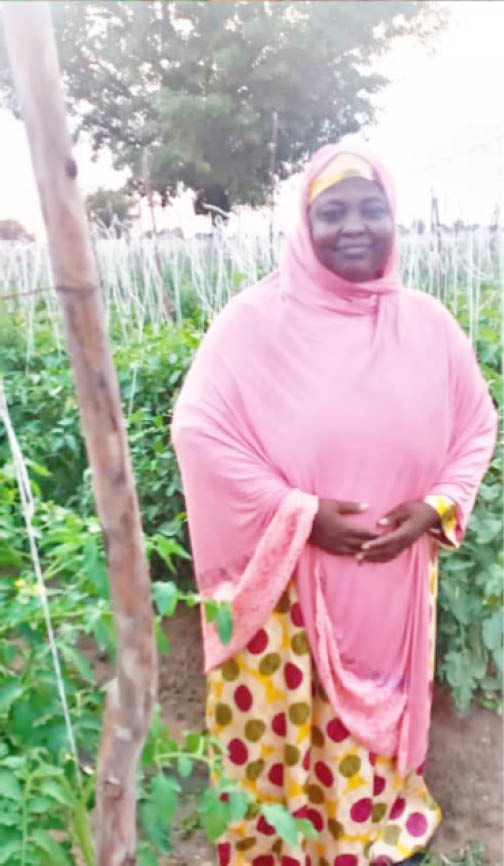Cost of farm inputs: Women farmers cry for help
With the hike in farm inputs experienced this year, many women farmers have lamented on how difficult it is to participate in this year’s wet season farming activities. Most of the women farmers revealed that their purchasing power of the costly farm inputs has been reduced to almost zero due to an unexplained hike in […]

Chairperson of Kano wing of All Farmers Association of Nigeria, Hajiya Sidiya
With the hike in farm inputs experienced this year, many women farmers have lamented on how difficult it is to participate in this year’s wet season farming activities.
Most of the women farmers revealed that their purchasing power of the costly farm inputs has been reduced to almost zero due to an unexplained hike in farm inputs, adding that women were highly excluded in a lot of agricultural interventions.
Prices of paddy, sesame, melon skyrocket in Taraba
Farmers in pain as flood ravages farms worth millions of naira
Malama Rukayya Salisu is one of the many women farmers in Kano State, who are battling to cope with the situation as the price of fertilizer and other agricultural inputs are biting harder.
“Ever since I ventured into farming, I have never experienced a situation where a bag of fertilizer sells for N27, 000, I cannot afford the exact quantity of fertilizer that my farm needs. So, I can’t do the same farming I used to do before,” she said.
She also claimed that women farmers have been marginalized in what is being seen as a male-dominated profession and as such cannot produce what they wanted to produce in the quantity they wanted to.
However, Malama Amina is not alone in the difficulty women farmers face in accessing fertilizers across the state despite the huge sum of money budgeted and expended for fertilizer procurement and distribution in the state.
Malama Rabi’atu Abubakar is also a farmer in Dala Local Government Area, who has been farming for 25 years. She said the soil fertility has been depleted and as such needs adequate fertiliser.
Another farmer from Kiru Local Government Area, Hajiya Sidiya Sharif, who has been farming maize, rice and soya beans for close to 29 years, said whenever she buys inputs from the market, there is little or no gain at the end of the planting season. She added that farming will not be profitable when farmers are buying a bag of fertilizer between N26,500 and N27,000.
She further explained that she was forced to revert to the use of cow dung from the cattle herders to fertilize her farm.
It is apparent that many women farmers are currently losing interest in agriculture because of the unbridled rise in the prices of farm inputs and other farm requirements.
However, Fatima Gambo, who was opportune to get the Anchor Borrower loan, tells a different story, although she lamented the late arrival of input to beneficiaries.
“I was once granted the anchor borrower loan for cotton but when the inputs arrived, it was towards the end of the planting period. We went ahead based on experts’ advice but we ended up not getting what we expected to get from the farm. That was why most of us refused to partake in the rice anchor borrower scheme when it came,” she revealed.
It was however gathered that many women farmers despite the hike still went to farm using primitive methods. They claimed that the labourers’ wages have increased as well. Ladi Shehu said they don’t have the resources to hire tractors and as such, they hire people to work in the fields.
“We pay each labourer N2,000 each time they come to work for us and sometimes you may have over ten people. This is one of the reasons we need the government to support us with funds and modern equipment. If we can get tractors to hire at subsidized rates, it will help us to work better,” she said.
The farmers called on all authorities concerned to come to their aid for them to be able to participate actively in agricultural activities.
“If the government can help somebody like me who has a keen interest in what I am doing, definitely, I will expand my farming business. If we are assisted, we can provide employment for many young people working around the streets.”
